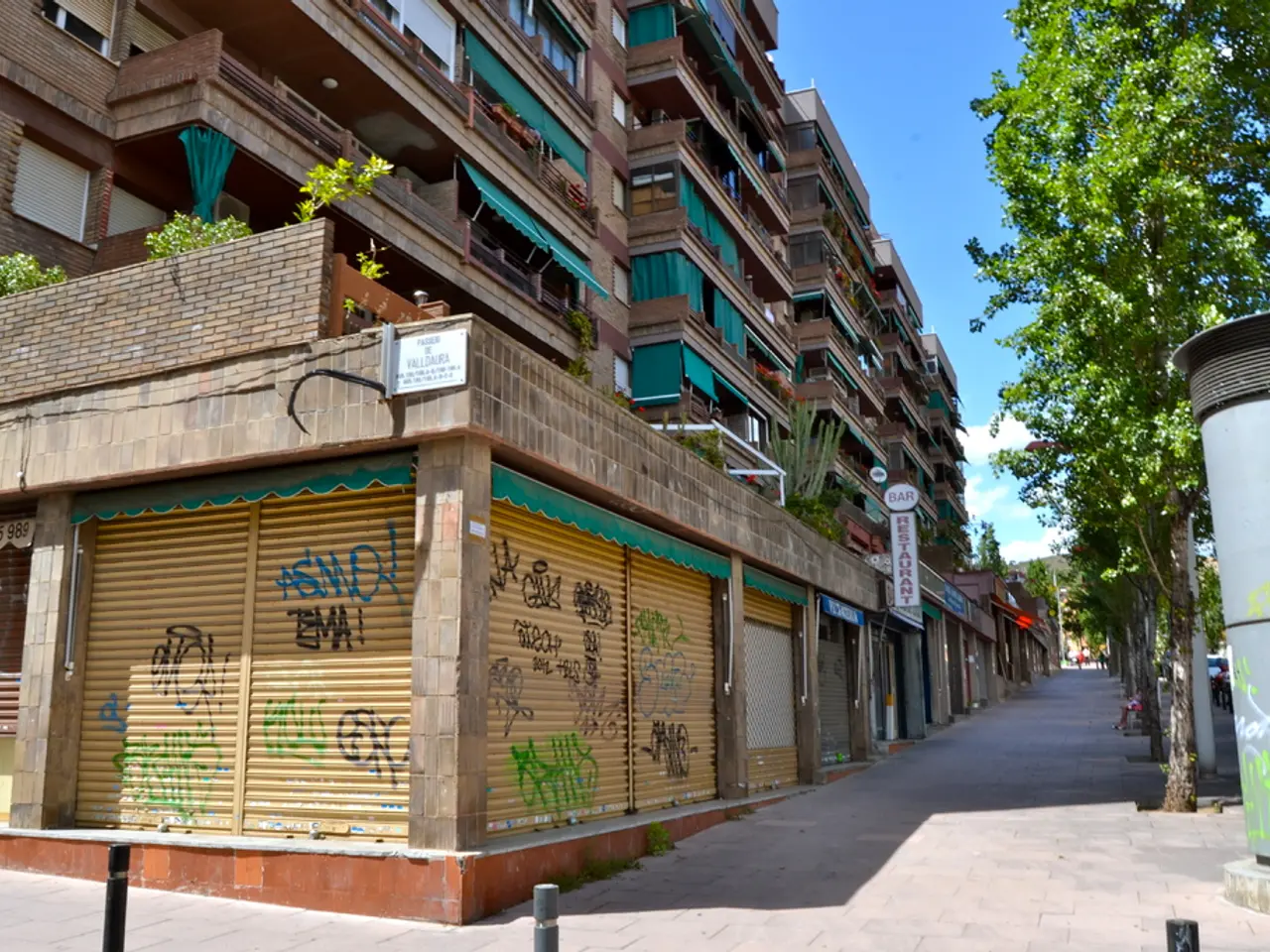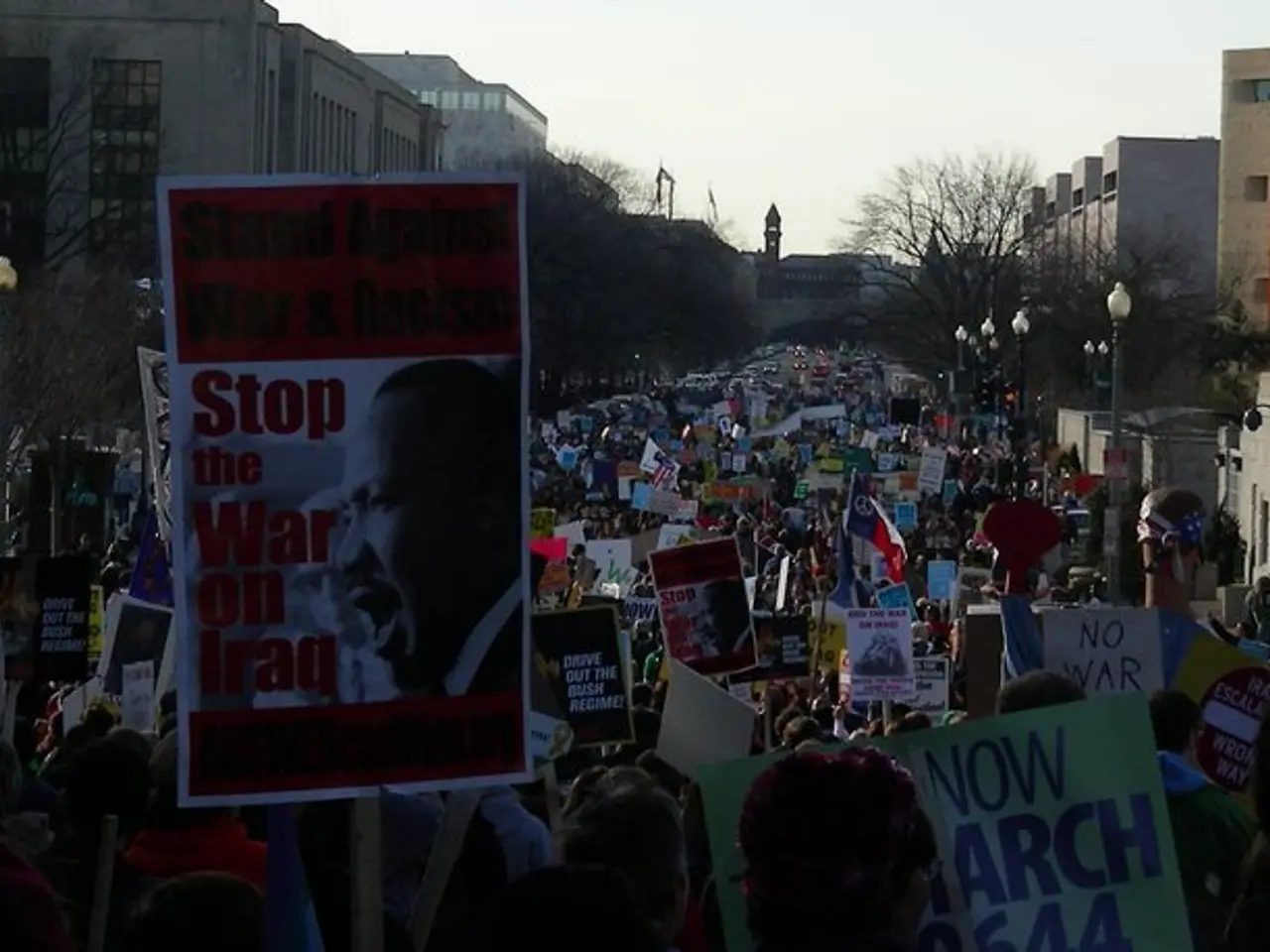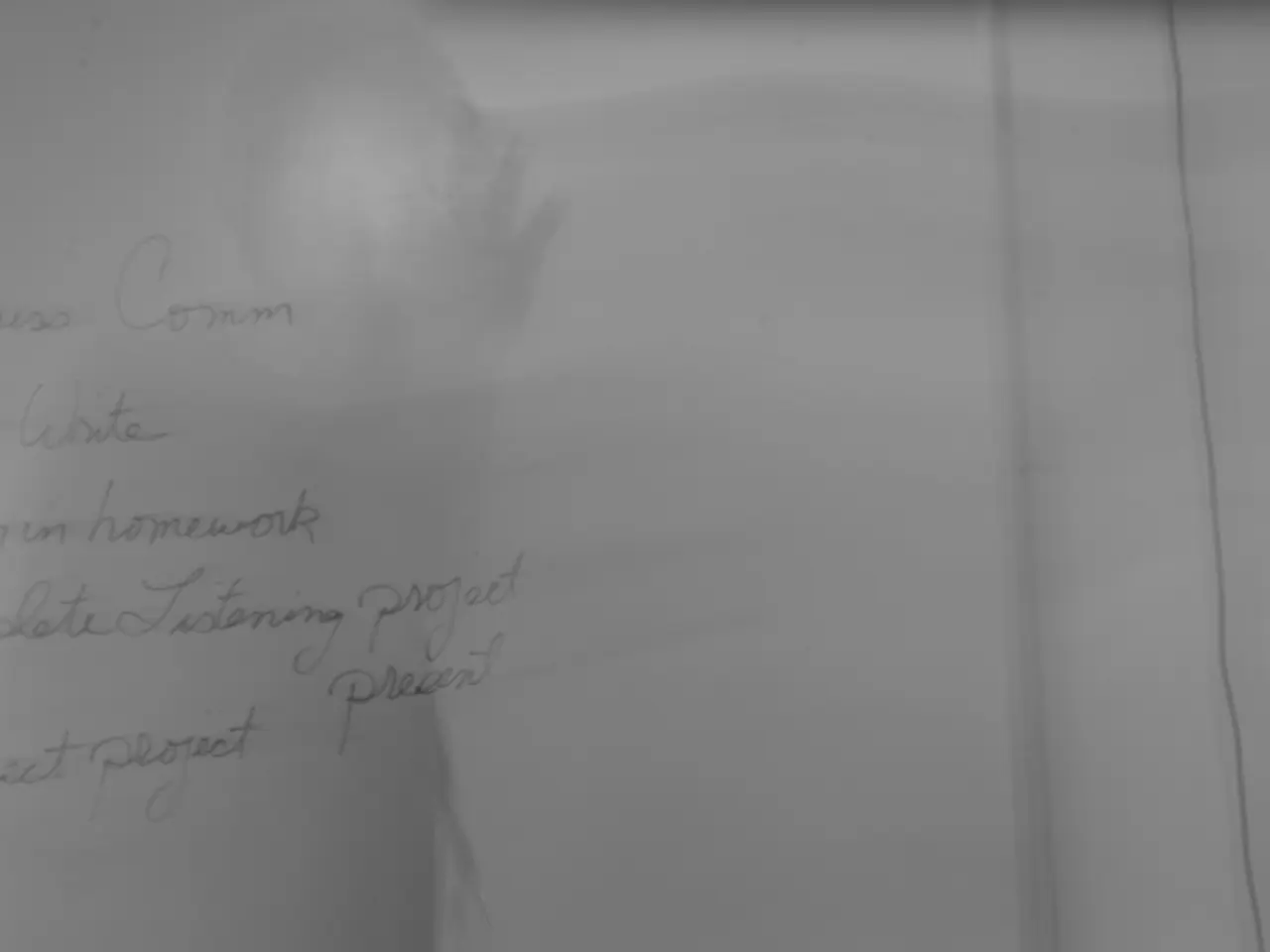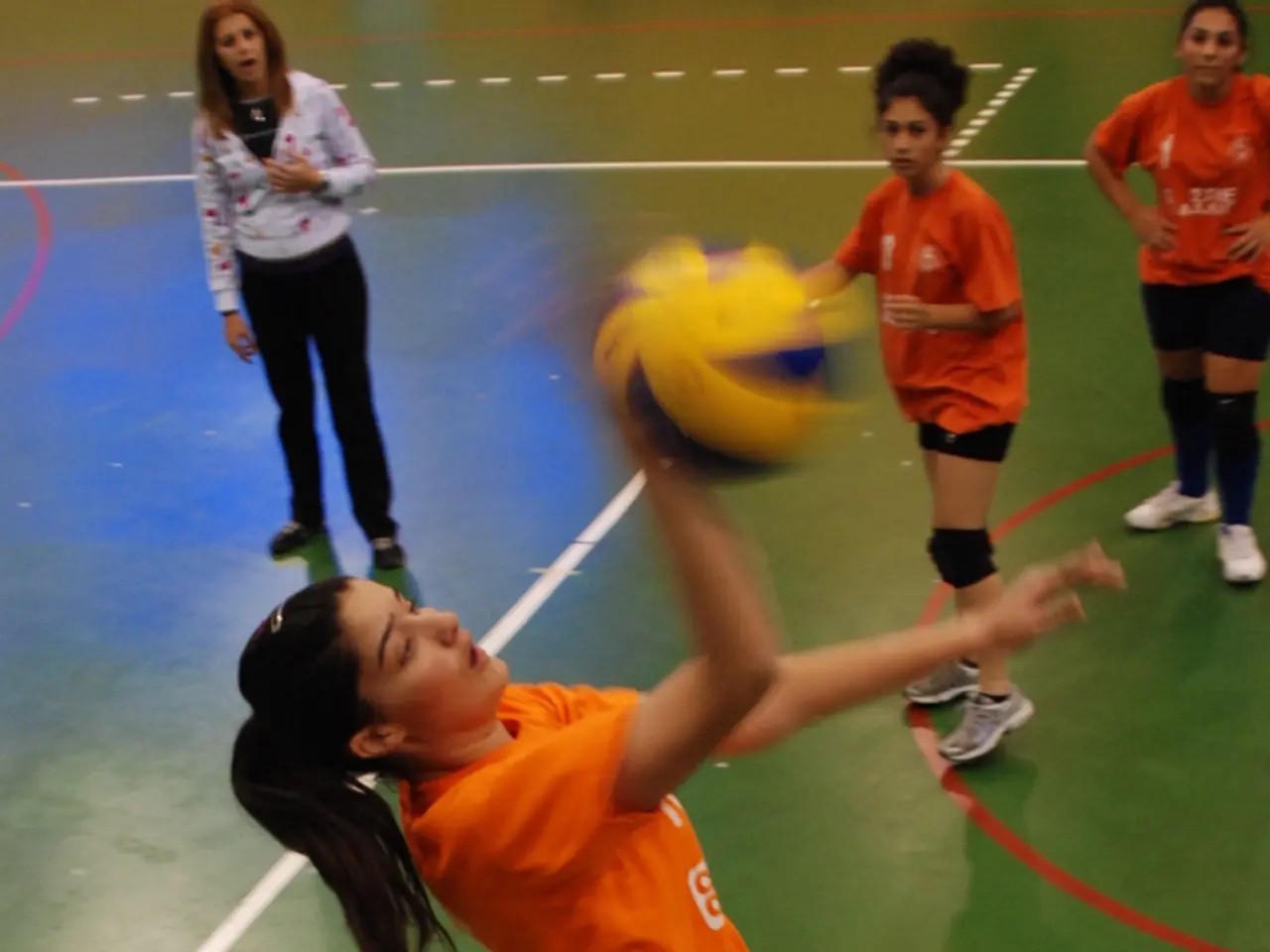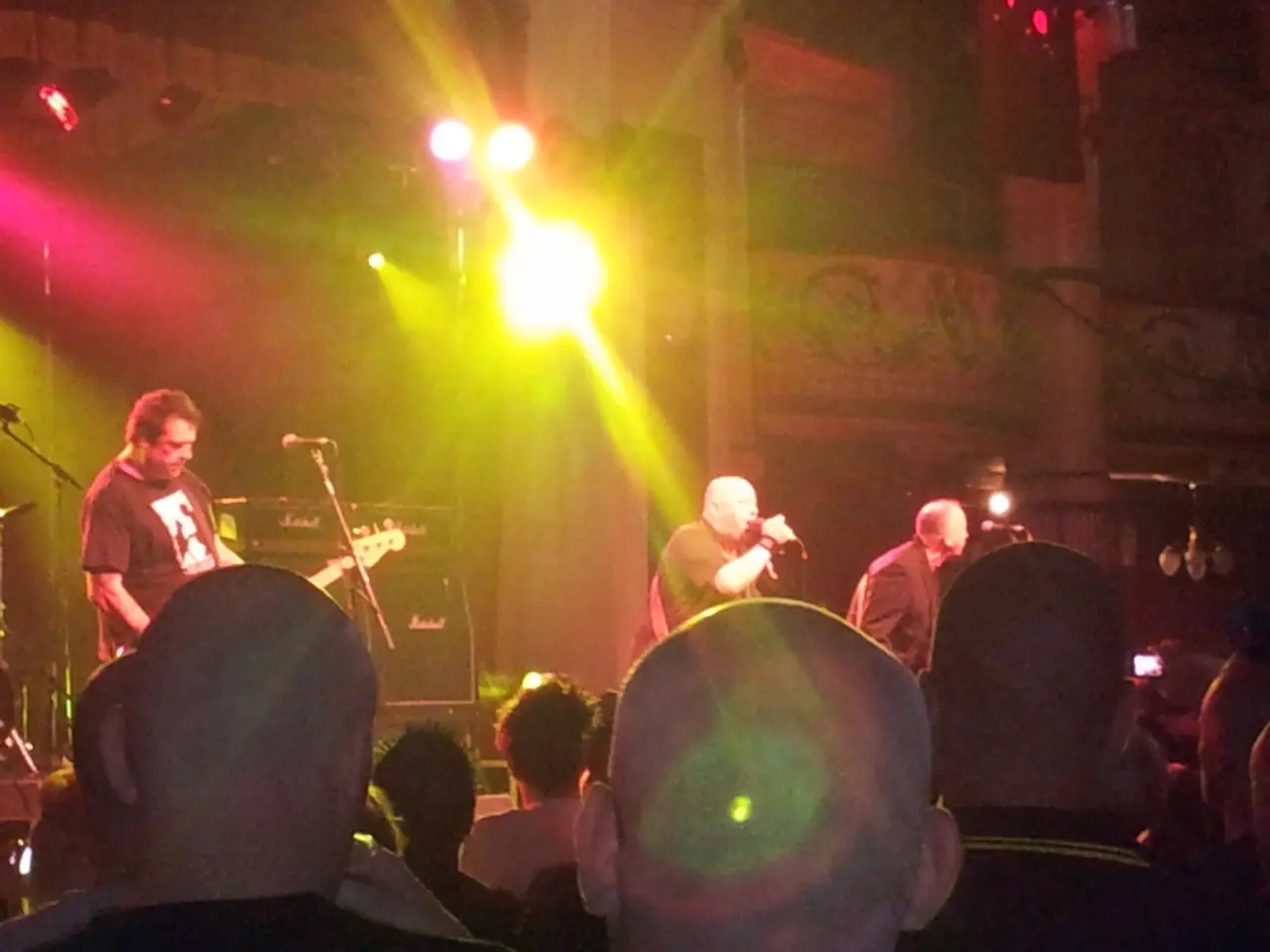City authorities have endorsed the outcome of the Plagwitz event
In a city known for its rich history and vibrant culture, the latest development in Leipzig's urban landscape has sparked a significant debate. On June 26th, the city council made a decision that would shape the future of one of its most contentious sites, the Bürgerbahnhof Plagwitz.
Udo Bütow, a councilor from the Alternative for Germany (AfD) party, declared the results of the negotiation process for the Bürgerbahnhof Plagwitz unacceptable. However, the compromise reached, after a series of intensive workshops and consultations, involves measures for heat-adapted and water-sensitive urban development. This includes the creation of rainwater storage facilities, swales, ponds, and vertical gardens, all aimed at preserving the city's green areas and maintaining a fresh air zone.
The decision-making process for land purchase negotiations for public green spaces in Leipzig is a complex one. It takes into account various environmental, social, and economic factors. For instance, the ecological value and sustainability are crucial considerations, as initiatives aim to halt biodiversity loss and support climate goals. Urban regeneration and housing market impacts also play a significant role, as demonstrated by the development of Lene-Voigt-Park.
Participatory planning and case-by-case assessments are also integral to the process. Land use rights and development are often determined through detailed negotiations, involving market interests. Consultation with local and regional authorities is also mandatory, ensuring local priorities and socio-economic factors are reflected.
The compromise reached on June 26th also considers the urban climate analysis and aims to create an ecological added value for the promotion of flora and fauna. The large part of the currently sealed area will be unsealed in the southern area, providing urban wilderness spaces. Compensation measures for endangered animal species will also be examined on site.
The goal is to provide green and open spaces that are designed with consideration for their small-scale climatic effects. The degree of new sealing should be minimized to counteract thermal overall load and create a favorable local microclimate for recreation.
The process led to the most intensive participation process the city has organized in recent years, with residents, environmental associations, and interest groups coming together to limit a construction project at Plagwitz station. Remarkably, for the first time in a negotiation process, the city society managed to make the city and the investor back down.
The question raised is whether the city belongs to investors and those with money to buy everything. The compromise on June 26th is not the end of the fight for Bürgerbahnhof Plagwitz, as the city council will need to address it multiple times in the future. The negotiations on land purchase can now begin for the development of public green spaces according to the result paper, which was approved by the city council with a majority vote.
As the city moves forward with this development, it is clear that the future of Leipzig's green spaces will continue to be a topic of debate and discussion, reflecting the city's commitment to environmental sustainability and its vibrant democratic process.
In the ongoing debate about Leipzig's urban landscape, the compromise reached on policy-and-legislation related to the Bürgerbahnhof Plagwitz involves heat-adapted and water-sensitive urban development, proving the significance of politics in shaping this general-news issue.
The complex process of land purchase negotiations for public green spaces in Leipzig, influenced by various environmental, social, and economic factors, highlights the integration of politics and policy-and-legislation in shaping the city's future.
